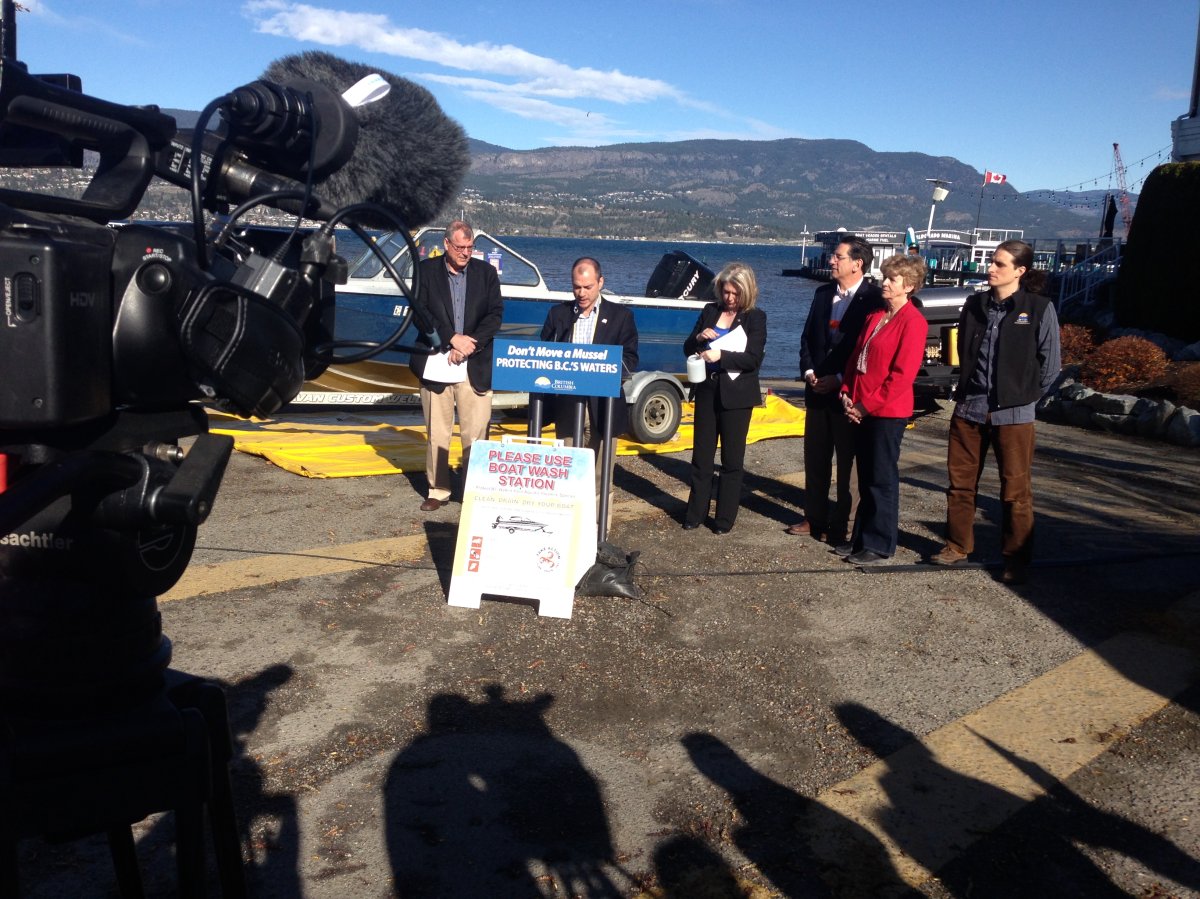KELOWNA – The Provincial Government is pouring in $1.3 million into a preventative program towards early detection and rapid response against invasive and potentially costly mussels. The funding announcement was made Tuesday morning on the edge of Okanagan Lake in Kelowna.

The quagga and zebra mussels have not yet been detected in British Columbia, but the expansion of the program will help protect B.C.’s lakes and rivers against the threat of the invasive species.
“This is a major step in our ongoing efforts to keep the province’s ecosystems, hydro stations, drinking water facilities and salmon populations safe,” says Minister of Environment Mary Polak. “It also provides specialized training and summer employment to university students specializing in environmental compliance.”
The expanded program includes teams that will inspect and, if necessary, decontaminate boats entering B.C. from Alberta. They will also respond to boats from the U.S. flagged as a concern by the Canadian Border Services Agency. Each crew will be equipped with mobile self-contained decontamination units.
Highway signage throughout the province will also be increased. Twenty-four new signs featuring the Clean, Drain, Dry program will be installed at significant entry points into the province.
“This is another step in our government’s ongoing efforts to prevent invasive mussels from becoming established in B.C.,” says Minister of Forests, Lands and Natural Resources and Kelowna-Mission MLA Steve Thomson. “I encourage all recreational boaters to familiarize themselves with the ‘Clean, Drain, Dry’ program so they can also do their part.”
The new money will also go towards the expansion of the Report All Poachers and Polluters (RAPP) line to receive and co-ordinate reports of mussel threats or incidents.
The quagga and zebra mussels pose a significant threat to B.C.’s and Canada’s freshwater ecosystems. The mussels threaten native species and fisheries in lakes and rivers. They can clog water intake pipes and lead to high costs to maintain hydroelectric, domestic water, industrial, agricultural and recreational facilities.
READ MORE: Mussels Control




Comments